 By: Dra. Gloria Robles
By: Dra. Gloria Robles
We all need to convince others to follow our proposal. Sales agents try to persuade buyers to choose the brand they’re promoting; advertisers try to increase the consumption of a product; politicians seek to win votes; and directors try to motivate their employees to turn their vision of the company into reality.
This means that persuasion is a subject of great use and utility. It is the reason why social psychology and communication sciences study it and have developed a series of techniques to make persuasive messages more effective. However, on many occasions, the ethical use of this tool has not been taken into consideration. In this context, the following paper is intended to identify the differences between manipulation and ethical persuasion, and invite readers to avoid the first idea and make use of the second.
General Persuasion and Ethical Persuasion
We must begin by defining the concept of persuasion. According to Collins (2009, p.4), persuasion consists of “an intentional and internalized change in attitudes, beliefs or behavior, derived from a communication where the receiver perceives some degree of freedom of choice.” For example, Cablevision, with its television commercials, tries to convince Internet users to discontinue the services provided by Telmex and change to Yoo, offering a series of arguments, such as speed and cost. In this way, it intends to change the consumer’s idea that its Internet service is faster than that offered by Telmex, so that the user changes his opinion and drops one provider for another. Their slogan is “Change Now.”
Analyzing the concept of persuasion as explained above, we discover that there is no ethical consideration. Rather, what is spoken of is effective and ineffective persuasion, depending on whether the objective is achieved or not. Gadner (2004, p. 212) expresses this practical concept of the art of persuasion in the following way: “It depends on us to choose the use we give [to the techniques of persuasion], whether we use them in a selfish and destructive manner, or in a generous way that seeks to improve people’s lives.” Therefore, the techniques proposed by communication theorists are neither good nor bad; their ethical value depends on the purpose for which they were used. In other words, the end justifies the means.
On the other hand, there are several authors (Messina 2007, Reardon 1991), who emphatically emphasize that persuasion should be applied with ethical standards. For example, Baker and Martinson (2001) propose that five principals must be met for persuasion to be considered ethical:
- Truthfulness of the message: tell the truth without deforming the information..
- Authenticity of the persuader: be genuine and act in accordance with your beliefs.
- Respect for the receivers: they should be treated as the end result and not as the means for getting there; they should not be used for personal gain, or the benefit of the company.
- Fairness in making the persuasive message attractive: avoid only talking about the positive aspects of the proposal, especially with a vulnerable audience, such as children and people with little education. Their limitations for understanding the costs and potential damage to them must be taken into account. Otherwise, the persuasion would be abusive and manipulative.
- Social Responsibility: It is important to consider the effects of persuasive communication in the community and society as a whole. It is unethical to try to achieve a sales objective or increase company profits at the expense of the common good.
In summary, we can say that for persuasion to be ethical, one must respect the dignity of the receiver, allowing him to make a voluntary, informed, rational and thoughtful choice.
Ethical concepts are fine in theory, but in practice they can be difficult to apply. To make this easier, Table 1 compares the factors that Gadner (2004) proposes to achieve effective persuasion to those that must be applied to convert persuasion into ethical use.
Table 1: Differences between Effective Persuasion and Ethical Persuasion
If we look at the big lies propagated by some pseudo-entrepreneurs or business managers, we see that while they were effective in their attempts to persuade, they were unethical. One example is the fraud perpetrated by the private investment firm Stanford Financial Group. It offered investors the promise of high-interest returns far above the average of the financial instruments available in the Mexican Market (it outlined very well the benefits of its proposal), but omitted to say that the institution was not registered in the Mexican SEC Commission and if it had losses they were not protected by any institution. Their proposal was deceptive and manipulative. The investors ended up losing their money and didn’t find a way of recovering it. The director, a real scoundrel, will have no chances of doing business again in Mexico and other countries in the world. With so much deception and manipulation in the business world, it would seem as though human beings have some mischievous little devil that leads them to want to abuse others, to quickly acquire wealth or power. But human wisdom seeks to counteract this little imp through the use of laws and regulatory institutions.
In contrast to the Stanford Financial Group, we find brokers of many Mexican brokerage firms who want to convince potential clients to invest in their institution. Of course, they base their proposal on solid arguments, supported by statistics of comparative returns on their investments with respect to those of the competition. When talking with a customer, they show enthusiasm about their products and clearly explain the benefits they will receive, avoiding deception and, above all, respecting the person’s freedom. Through the use of ethical persuasion, the client will trust and have confidence in the institution and with the executive, which will allow him to continue doing business with them, instead of the competition. In the long range, ethical persuasion yields a good return.
How To Protect Yourself from Unethical Persuasion
While the persuader should behave in an ethically responsible way, the receiver must also do his part by protecting himself from abusive and deceptive persuasion. To achieve this, Pratkanis and Aronson (2001) have suggested the following measures:
- Understand how persuasion works and how you can become a victim of propaganda. For example, we can develop the habit of analyzing advertisements that promote miracle products (such as those that get rid of wrinkles in 60 seconds) and ask ourselves if realistically the product can do everything the ad promises.
- Monitoring our emotions. If you feel as though your emotions have been played with, step back and analyze the situation. For example, if you begin feeling afraid or guilty if you don’t contract a service, analyze whether or not you really need it.
- Explore the motivations and credibility of the communication source. Ask if the communicator is an expert and if he is trustworthy. For example, it is obvious that a sales agent wants to make a sale and receive a commission, so we should question whether he truly wants to help us select a product that serves ours needs, especially if the competition sells it.
- Think rationally about the proposal that is being made. Be the devil’s advocate and think about reasons why you should not do what is being asked of you. For example, if you are going to buy a house, a real estate agent will tell you all the good things about a house, and it is up to you to find out all its defects.
- Analyze the complete range of alternatives before making a decision. Do a marketing study before buying a product or service. For example, if you have decided to buy a laptop, go to several stores and study the different models to compare prices and the features they offer.
- Don’t base your evaluation on what the persuader says, but on what he does. For example, if Televisa says that the mass media has a social responsibility and we see that the company supports campaigns like the Teletón, we can believe what they are saying.
- If the proposal is too attractive to be true, be aware because it may be misleading. If the investors at Stanford Financial Group had taken into account this recommendation, perhaps they would not have lost their money.
Conclusions
Human beings want other people to do what they ask, whether they are entrepreneurs, advertisers, managers or politicians. To achieve this, they can apply principles and tactics of effective persuasion, without being concerned with deception or manipulation. At first, unethical persuaders may achieve their objective, but when the receivers become aware of the abuse, trust will be broken and it will be nearly impossible to restore it. In the business world, trust is fundamental. If a business manager or director speaks truthfully, is authentic, and respects the dignity of his clients and his employees, they will trust him and long-standing relations can be established. Ethical persuasion has its costs, but the investment is well worth it. ?
BIBLIOGRAPHY
- Baker S. and Martinson D.L. (2001). “The TAREAS Test: Five Principles for Ethical Persuasion”. Journal of Mass Media Ethics16, No. 2 & 3: pp. 148-175.
- Collins S.D. (2009). Persuasion. Managerial Communication Series. USA: South-Western Cengage Learning.
- Gardner H. (2004). Changing Minds. Boston, Massachusetts: Harvard Business School Press.
- Messina A. (2007). “Public Relations, the Public Interest and Persuasion: an Ethical Approach”. Journal of Communication Management. Vol. 11, No. 1: pp. 29-52.
- Pratkanis A. R. y Aronson E. (2001). Age of Propaganda. The Everyday Use and Abuse of Persuasion. New York: Henry Holt and Company.
- Reardon K.K. (1991). La Persuasión en la Comunicación: Teoría y Contexto. México: Paidos.
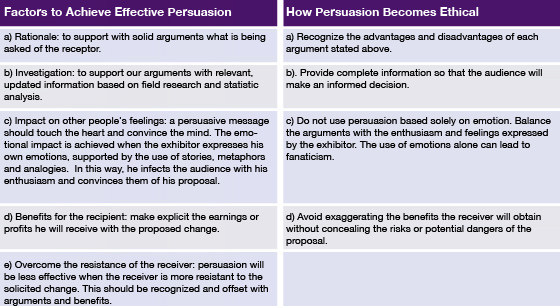


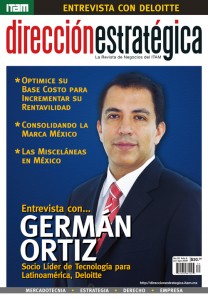




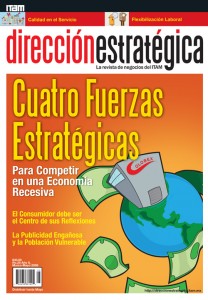
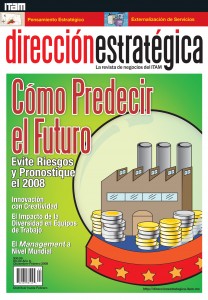
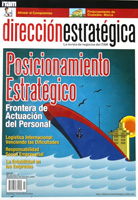



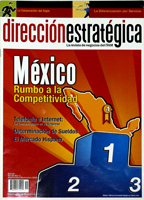
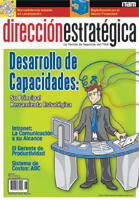

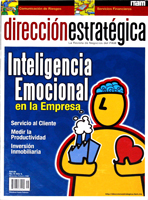













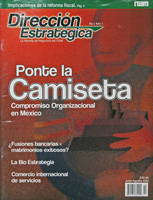

One Comment
Buen artículo, aunque en la parte de las conclusiones me quedé en el aire sobre, ¿cuáles serían los costos que se podrían pagar por la persuasión ética?, creo que el tema bien vale la pena una parte 2.
Finalmente, considero que para llevar la persuasión ética a los negocios debemos antes practicarla en la vida diaria, ya que hoy en día es muy utilizada la manipulación en los asuntos de la vida cotidiana incluyendo las relaciones sociales, creo que si no comenzamos a realizar un cambio profundo en nuestro actuar, difícilmente lo llevaremos a cabo en el ambito profesional.
One Trackback
[...] de Junio, 2010 …………………………………. Fuente: Dirección Estratégica Imagen: Converesation tips Artículos relacionados: – 15 lecciones de [...]